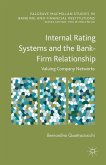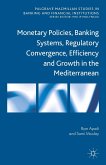With globalisation comes an increase in the threat from systemic risk. As national economies become more globally entwined many argue that insufficient attention is being given to systemic risk; a principal contributor to recent economic crises. Focusing on the Polish financial system, this book addresses this critical issue within a global economic context. It advocates that accurate risk management practices and appropriate micro and macroeconomic policies can be created and maintained in order to manage systemic risk at both a national and international level. The book reviews current systemic risk management practices, analysing stability and existing micro- and macroprudential policies, before examining the current risks involved in investing in financial instruments and those associated with investing in stock exchanges. It offers suggestions for the effective implementation of a well-designed public policy, through well managed fiscal and monetary policies, and reflects the roles of households and companies in planning, organizing, and controlling socio-economic activity to control risk. Risk Management in the Polish Financial System aims to redefine the taxonomy of systemic risk, offering practical and regulatory socio-economic processes which can be applied to current risk management practices, as well as provide a risk map for the years to come.
Bitte wählen Sie Ihr Anliegen aus.
Rechnungen
Retourenschein anfordern
Bestellstatus
Storno









